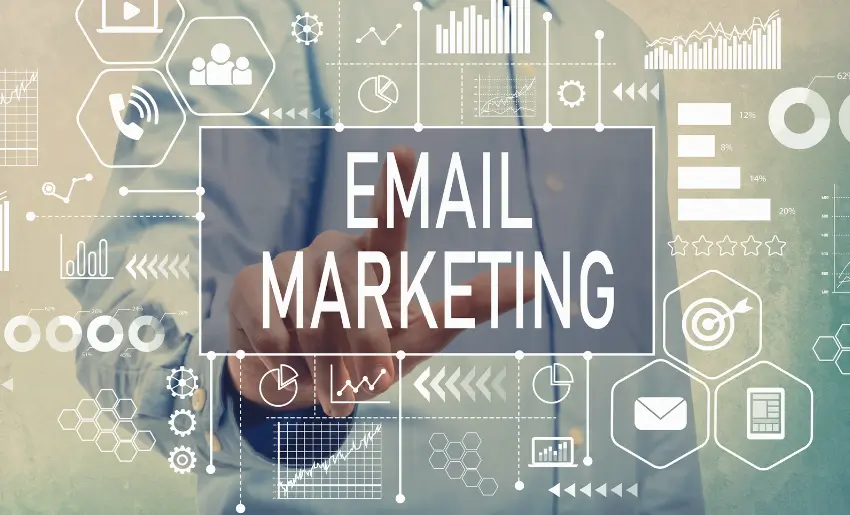“Marketing’s job is never done. It’s about perpetual motion. We must continue to innovate every day.”
Beth Comstock
The landscape of email marketing has evolved significantly, with AI playing a crucial role in optimizing campaigns. One of the most pressing issues marketers face is ensuring deliverability and engagement amidst increasing spam filters and changing recipient behaviors. This article delves into how AI-driven email marketing software addresses deliverability challenges, explores the nuances of email engagement, and highlights the broader implications for businesses.
The Challenge of Email Deliverability

Email deliverability is a critical aspect of email marketing, determining whether emails reach the intended recipients’ inboxes. With over 300 billion emails sent daily, ensuring high deliverability rates is essential but increasingly difficult due to sophisticated spam filters and ever-evolving recipient behaviors. According to Return Path’s “Email Deliverability Benchmark Report,” only 85% of commercial emails reach their intended destination.
Spam filters use advanced algorithms to scrutinize emails based on various criteria, including sender reputation, content quality, and recipient engagement. Emails that fail to meet these criteria are often relegated to spam folders, reducing their visibility and impact. A study by Litmus found that 21% of marketing emails never reach the inbox, significantly affecting the overall effectiveness of email campaigns.
AI Solutions for Email Deliverability
AI-driven email marketing software offers advanced solutions to enhance deliverability. Machine learning algorithms analyze vast datasets to identify patterns and factors that influence email deliverability. These insights enable marketers to optimize their email content, timing, and sender reputation to improve deliverability rates.
AI can predict the likelihood of an email being marked as spam based on its content and historical data. For instance, tools like SendGrid use AI to analyze email content for spam trigger words and phrases, suggesting modifications to enhance deliverability. This proactive approach helps marketers create emails that are more likely to pass through spam filters and reach recipients’ inboxes.
Real-time analytics provided by AI-driven software allows marketers to monitor email deliverability and engagement metrics. This data-driven approach helps identify and address deliverability issues promptly. For example, AI can detect when a particular email campaign has lower-than-expected deliverability rates and suggest corrective actions, such as adjusting the send time or modifying the content.
Enhancing Engagement with AI

Beyond deliverability, maintaining recipient engagement is crucial for the success of email marketing campaigns. AI-powered email marketing software can analyze recipient behaviors and preferences to deliver personalized content that resonates with them. This level of personalization increases the likelihood of recipients opening and interacting with emails.
Natural Language Processing (NLP) is a key AI technology used to enhance email engagement. NLP algorithms analyze recipient responses and interactions to understand their sentiment and preferences. This enables marketers to tailor their email content to align with recipient interests, increasing engagement rates. For example, tools like Phrasee use NLP to generate subject lines and email content that are optimized for engagement.
Predictive analytics further enhances engagement by identifying the best times to send emails to individual recipients. AI algorithms analyze past recipient behaviors to determine optimal send times, ensuring that emails are delivered when recipients are most likely to engage with them. A report by Omnisend found that personalized email campaigns that leverage predictive analytics can result in a 29% higher open rate and a 41% higher click-through rate.
Practical Implementations and Business Benefits

Several email marketing platforms leverage AI to enhance deliverability and engagement. For example, Mailchimp uses AI-driven tools to optimize email deliverability by analyzing sender reputation and recipient engagement. The platform’s predictive analytics feature helps marketers schedule emails for optimal times, enhancing engagement rates.
Another example is HubSpot, which employs AI to personalize email content and improve deliverability. HubSpot’s advanced algorithms analyze recipient data to deliver relevant content at the right time, increasing the effectiveness of email campaigns. This AI-driven approach helps businesses achieve better results from their email marketing efforts.
The integration of AI into email marketing software not only enhances deliverability and engagement but also offers broader business benefits. These include increased efficiency, reduced costs, and improved decision-making. By automating routine tasks and providing data-driven insights, AI allows marketers to focus on strategic initiatives and creative content development.
Conclusion
Ensuring high email deliverability and engagement is crucial for the success of email marketing campaigns. AI-driven email marketing software provides advanced tools to address these challenges through real-time analytics, predictive insights, and personalized content. By leveraging AI, marketers can significantly improve their email deliverability rates and enhance recipient engagement.

Incorporating AI into email marketing not only addresses deliverability and engagement challenges but also offers broader business benefits, including increased efficiency and improved decision-making. As such, businesses should consider adopting AI-driven email marketing solutions to stay ahead in an ever-evolving digital landscape.
For marketers looking to optimize their email campaigns, integrating AI-driven tools provides a significant competitive advantage. The future of email marketing lies in leveraging AI to enhance deliverability and engagement, ensuring that marketing efforts achieve the desired outcomes.


